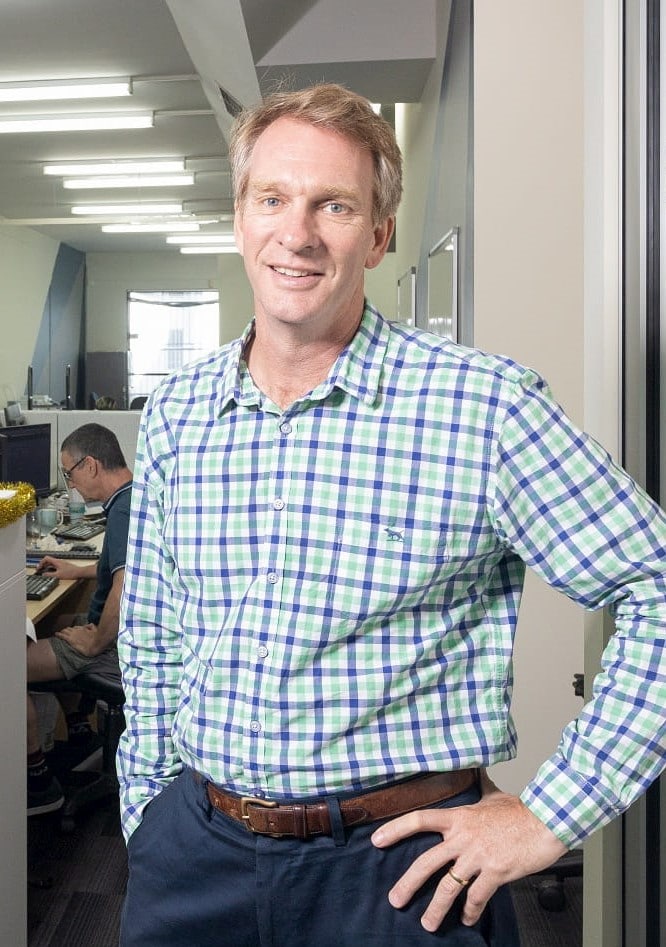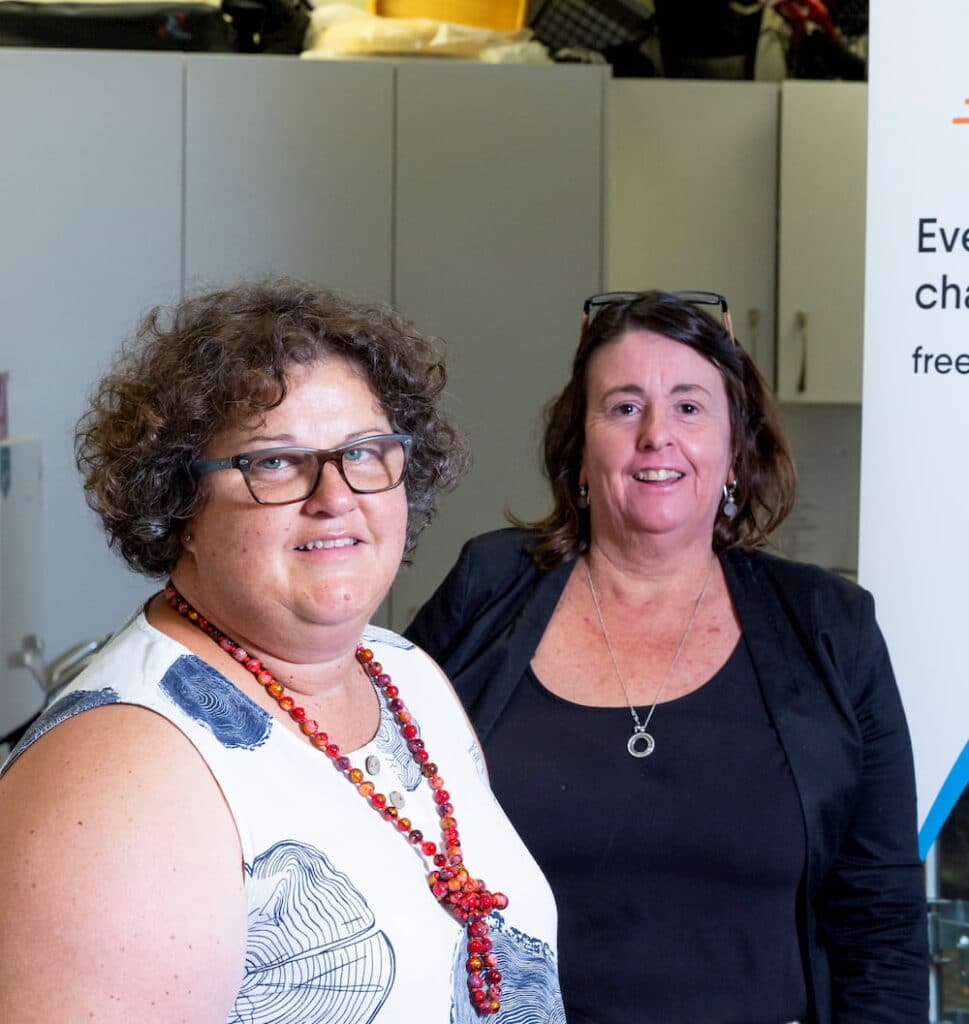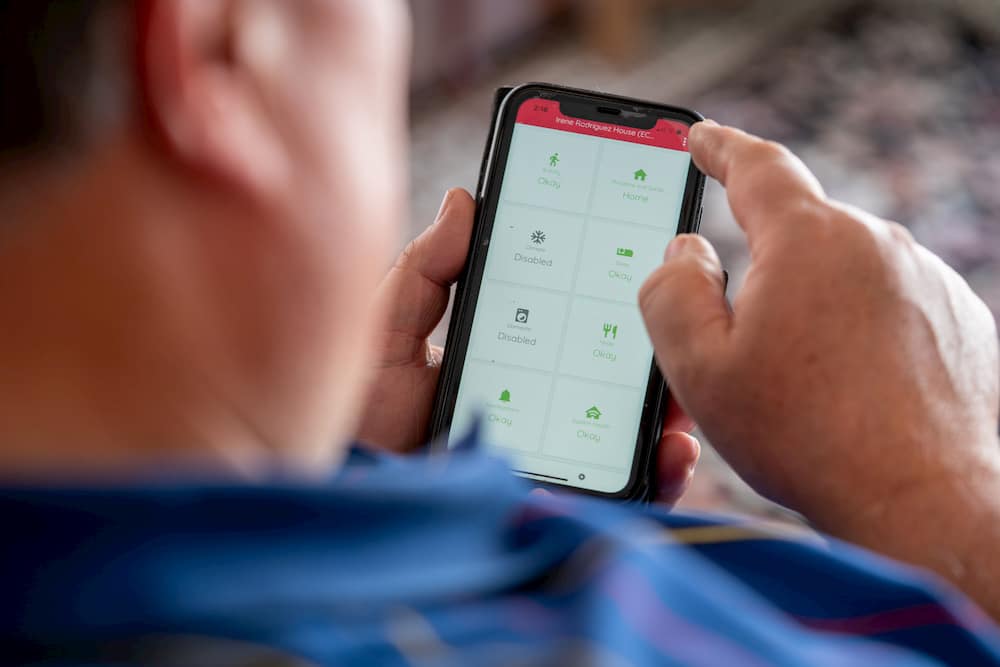As families across the country look for ways to help their elderly relatives maintain independence at home, a practical technology on the cusp of hitting the ACT market, InteliCare, aims to provide a solution.
InteliCare relies on a system of motion sensors placed around the home, and CEO Jason Waller described it as “a way of preserving independence” amongst older Australians.
“There isn’t a family in Australia that isn’t affected by this,” he said.

“Often, we make decisions based on emotions and fear, not facts and data, and often the data points to [the older person] being able to stay home.”
Mr Waller said pendants and duress systems were old technology, and 80% of people who had pendants didn’t use them in an emergency.
“Now we have customers in NSW, Victoria, Queensland, and soon, the ACT.”
After installation, InteliCare gathers data about the daily household routine by detecting motion throughout the home, without video cameras or microphones.
This information provides an overview of what time residents get up in the morning, how often they open the fridge, how regularly they leave the house, how frequently they use the bathroom, and more.
The elderly homeowner gives permission for a friend, family member or carer to install the InteliCare app on their smartphone and receive notifications if they significantly deviate from routine, so they can receive support as soon as possible if they’re in trouble.
InteliCare will be available in the ACT through not-for-profit charity Technology for Ageing and Disability ACT (TADACT), with support from independent community foundation Hands Across Canberra and the Chief Minister’s Charitable Fund.
A new approach to ageing at home
Although InteliCare is pitched at Australia’s ageing population, TADACT CEO Julie Lobel said it had great practicality for people living with other health concerns such as diabetes, cardiac issues, physical disabilities, and early onset dementia.
Ms Lobel said InteliCare offered families and carers greater peace of mind by sending an ‘All OK’ notification each morning or picking up if something was out of the ordinary.
“They might think, ‘Hmm, she hasn’t made a cup of tea. She hasn’t been moving in the bathroom. And the fridge hasn’t opened. What’s going on?’”
She gave the example of people with early onset dementia and Alzheimer’s who were still capable of living independently, although they may need reminders to eat regular meals.

InteliCare will send a notification if the fridge isn’t opened throughout the day.
“It’s a really good system, because the child can ring up, or the carer can ring up, and say ‘Hey, have you had something to eat today?’.
“So I guess it’s a little bit pre-emptive as well, without being invasive, which is quite unique to most systems as well,” Ms Lobel said.
TADACT community engagement manager Trudy Taylor said the new technology offered older people a greater sense of independence and privacy because it meant fewer people interrupting them throughout the day, and the sensors would unobtrusively blend in with their environment.
“It just means it’s a quick glimpse on your phone, rather than having to call or drive over there,” she said.
“So I think the system is just a different way of approaching caring for people and allowing them to be in their homes for just a little bit longer – at their own pace and under their own terms.
“But it also allows that balance of a watchful eye.
“They’re conversations that we do have to have with our aging parents and grandparents.”
Academia and private sector critical of aged care
UNSW Emeritus Professor Bruce Judd, co-editor of Ageing in Place: Design, Planning and Policy Response in the Western Asia-Pacific, said with an increasingly ageing population, supporting people to grow old in their own home needed to sit “higher on the agenda” for governments.
“It’s about giving them options and providing them with the right support to remain in the place of their choosing … which we know can contribute to positive health and wellbeing in older age,” he said.
InteliCare’s Mr Waller said Australia’s ageing population was “not going away” and the Federal Government could not be relied on to adequately fund aged care.
“We simply do not have the federal budget to support the aged care sector, particularly with such an enormous bill from COVID.”
Professor Judd looked to Japan as an example of a country that was proactive in terms of policy, community care, experimenting with housing design and exploring possibilities around robotics in the growing sector of e-care for its ageing population.
“The question is for us is really, will we be prepared to do the same?”



